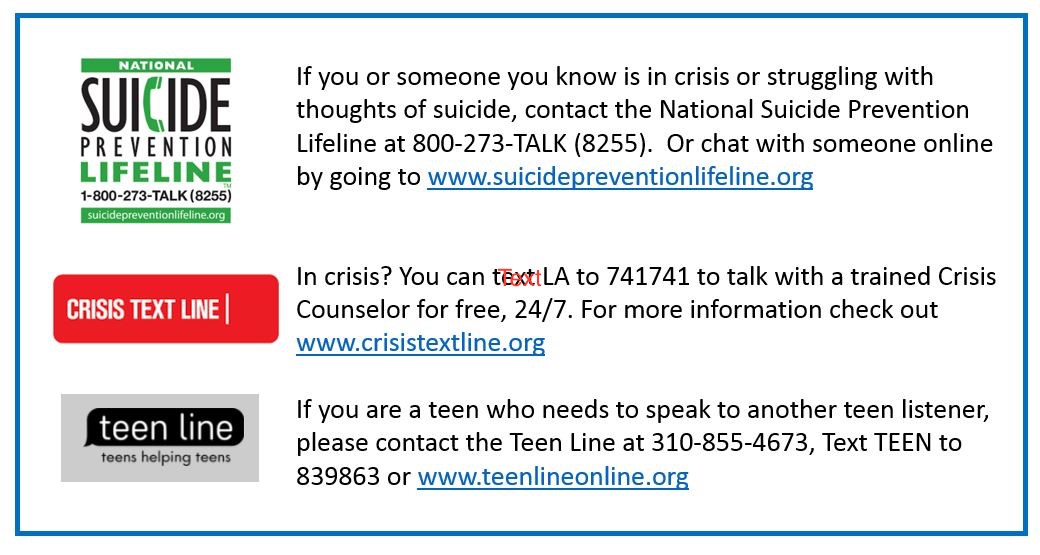Over the course of the holidays, some of use will sit down and spend time with our families. Some of us will be alone. For some, these moments may be challenging in and of themselves, while for others they may be healing. Whatever the case for you, you can use these moments to have a conversation.
- Check in with yourself and think about how you are feeling right now. The holidays might be something you are excited about, or it might be a difficult time for you. It’s important to remember that many people – adults and young people alike – struggle during the holiday season. Even if it seems like most of your co-workers, neighbors or classmates are heading into the holiday break with cheery stories about family traditions and big meals, it’s important to be in touch with your own feelings – no matter what they are. Know that many people are challenged at the holidays, and if you are too, you’re not alone.
- Make a plan to check in with loved ones to see how they are managing the holidays, and how they are feeling in general. Think about the person you want to engage before starting the conversation. The holiday season can be joyous and it can also be a challenge. For some, it can be a reminder of something painful. What has the past year been like for them? Have they faced any big challenges or life changes? Maybe a person suffered a recent loss, or maybe their family is struggling with financial hardship, or with a divorce, or a serious illness. Do you suspect that they may be turning to substances to make them feel better about life? Whatever the case, it’s important to be thoughtful about what we know about a person we want to reach, and to remember that whether they are feeling great or not so great, it’s OK. Respect people for how they are feeling, and resist the urge to tell them they should be feeling some other way.
- Ask open-ended questions that invite a person to respond with more than “I’m fine,” or “Not much.” Too often in today’s world, polite questions and answers mask the way someone is really feeling, or cuts off the opportunity to answer in a meaningful way. Instead of asking “How are you?,” ask “How are you feeling?” Instead of “What’s going on?”, ask “What’s happening for you this weekend?” And follow up if you get the “Fine” or “Not much” answer. Look beyond the surface.
- Listen carefully to what you hear, and think about what you learn. While this is just one conversation, it’s an important opportunity to learn about someone in your life. Many people feel like they are alone with how they are feeling and that no one else is interested, or they may minimize their problems and tell themselves it’s no big deal. So this season, really listen to the answer when you ask someone how they’re feeling. If someone needs help – maybe they tell you that they are depressed or think they are drinking too much- know that there are plenty of resources available to support them and help them #be well. Help them to understand that you hear them, and to know that you are there for them.
Sometimes these conversations reveal that someone needs more help than you can provide. Connecting people to help and making sure they follow through can be a life saver for someone in despair. If you sense that someone needs more help than just a conversation, encourage them to reach out to a crisis service, their primary care provider, their faith community leader or whomever they are comfortable with who is equipped to deal with someone in crisis. You can also call or text the following resources:
- Share your story this holiday season, we’re hoping that millions of people will take the time to talk to someone else about how they are feeling. We’d love to hear from you too. Let us know if you had a conversation with someone, or let us know how you are feeling. You can share with us online using the hashtag #BeWell. Tell us what you learned, how you are doing or what you hope for this holiday season and for the new year.







